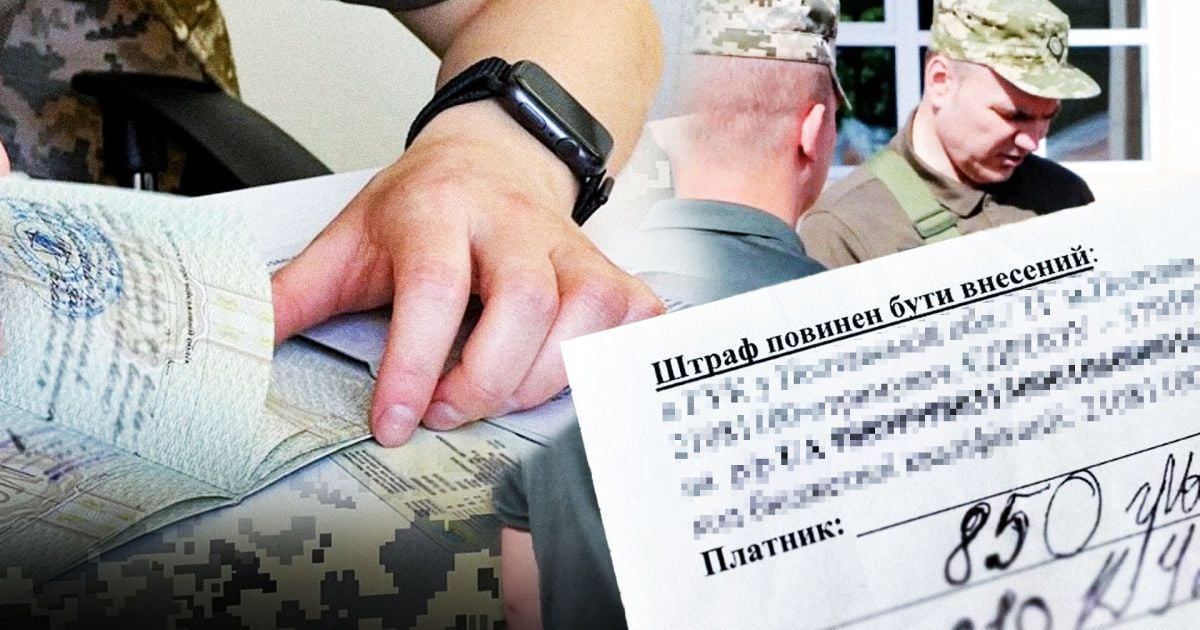Hryhorenko Andrii – an attorney specializing in intellectual property rights protection, debt collection, and litigation. He has significant experience representing clients' interests in commercial, administrative, and local general courts of all instances. His main specialization is the legal protection and defense of intellectual property rights, as well as the comprehensive protection of intellectual property objects.
Input Data:
The client sought legal assistance in a critical situation. He faced a fine imposed by the District Territorial Center for Recruitment and Social Support (DTRCS). The particular difficulty lay in the fact that, at the time of contacting the lawyer, this fine was already subject to compulsory collection by the State Enforcement Service (SES). This meant that the client was under immediate threat of bank account blocking, property seizure, and other negative consequences associated with compulsory enforcement.
This state of affairs created significant inconvenience, financial risks, and psychological pressure, requiring immediate and decisive legal intervention to suspend the collection and appeal the fine itself. In the context of martial law, interaction with military bodies is particularly sensitive, and the need for qualified protection of citizens' rights increases many times over.
Problem:
A deep analysis of the case circumstances revealed that the key violation underlying the legal intervention was the unlawfulness of the fine itself, imposed by the DTRCS. This means that significant violations of current legislation were committed during its issuance – either regarding the procedure for bringing to justice, or regarding the actual absence of an administrative offense, or due to the unlawful application of legal norms.
The fact that the fine was already subject to compulsory collection through the SES indicated a critical level of threat to the client. Compulsory enforcement of DTRCS decisions, which are public authorities, requires strict compliance with the Law of Ukraine "On Enforcement Proceedings" and the Code of Administrative Procedure of Ukraine (CAP of Ukraine). The unlawfulness of the fine proved that the actions of both the body that imposed it and the enforcement service that carried out the collection required immediate legal review for compliance with current legislation. In the context of a special period, the protection of citizens' rights from potentially unlawful actions of military bodies acquires particular importance.
Desired Outcome:
Recognition of the DTRCS fine as unlawful and its cancellation, as well as an immediate suspension of enforcement proceedings for compulsory collection to protect the client's financial and property rights.
Responsible Lawyer:
(Not specified in the case text who the responsible lawyer is)
Solution:
The lawyer developed a comprehensive legal strategy that provided for the simultaneous resolution of two key tasks: appealing the unlawful fine and immediately suspending its compulsory collection.
- Preparation and submission of a statement of claim to declare the fine unlawful.
A meticulously drafted statement of claim was prepared and submitted to the administrative court. It detailed the circumstances of the case and the legal justification for the unlawfulness of the fine imposed by the DTRCS. The statement of claim included references to specific norms of legislation (e.g., CAP of Ukraine, Code of Ukraine on Administrative Offenses) that were violated by the military body. All available evidence refuting the legality of the fine was collected and attached. - Submission of a motion to suspend enforcement proceedings.
In parallel with the statement of claim, an urgent motion was prepared and submitted to the court to suspend the compulsory enforcement proceedings for the collection of this fine. This is a critically important step that helps avoid irreparable harm to the client (e.g., blocking of accounts, seizure of property) before the court issues a final decision on the merits of the dispute. The motion was substantiated by both the likelihood of the claim's success and the risk of significant harm if the collection continued. - Representation of the client's interests in the court hearing.
The lawyer ensured qualified representation of the client's interests in all court hearings. He argued convincingly for the unlawfulness of the fine and the necessity of suspending the collection, provided additional explanations, and answered the court's questions, as well as counter-argued possible objections from representatives of the DTRCS or SES.
Result: The court fully satisfied the plaintiff's claim. The court decision declared the fine imposed by the DTRCS on the client unlawful, leading to its cancellation. Furthermore, based on the court's ruling, the enforcement proceedings for the compulsory collection of this fine were suspended until the court's decision took legal effect (case № 544/470/25). All actions of the SES regarding compulsory collection were ceased.
This decision fully protected the client's rights, eliminating an unlawful financial burden and confirming the unlawfulness of the DTRCS's actions. The case demonstrates the extreme importance and effectiveness of judicial control over the actions of state bodies, especially those with public authority in the context of martial law. It shows that citizens have effective legal instruments to protect their rights even in complex situations, and qualified legal assistance is the key to successfully defending legitimate interests and ensuring the rule of law.
.png)






























